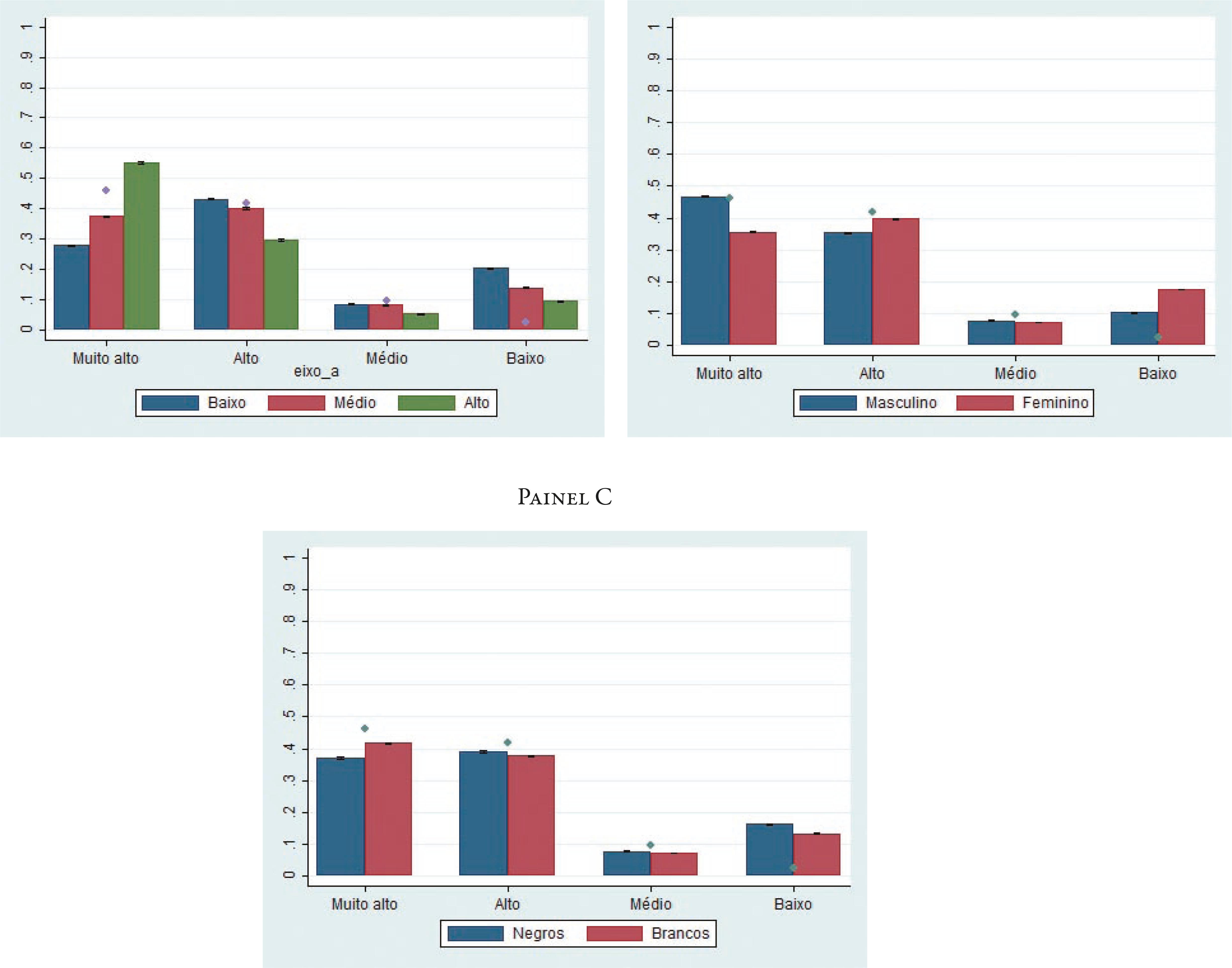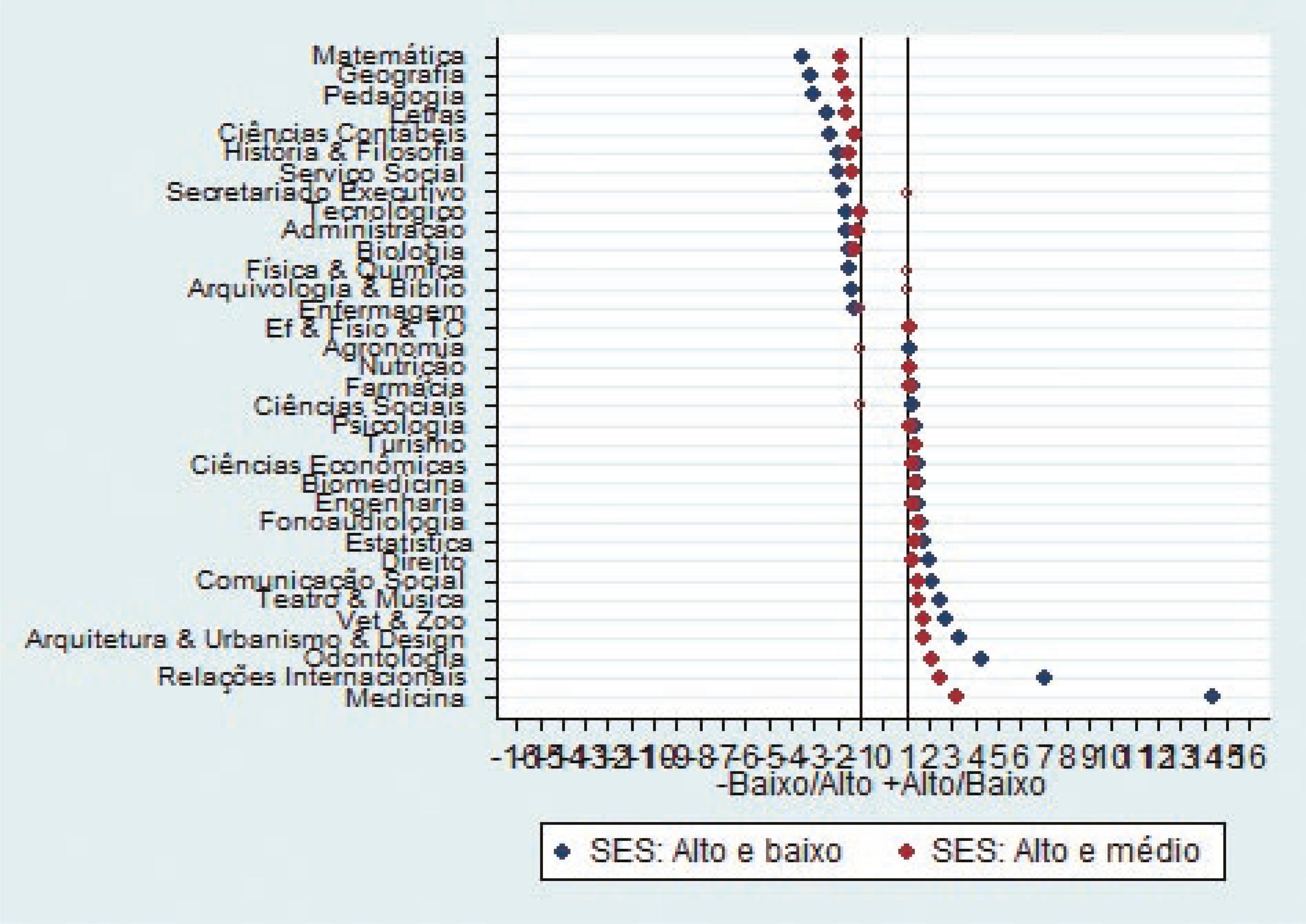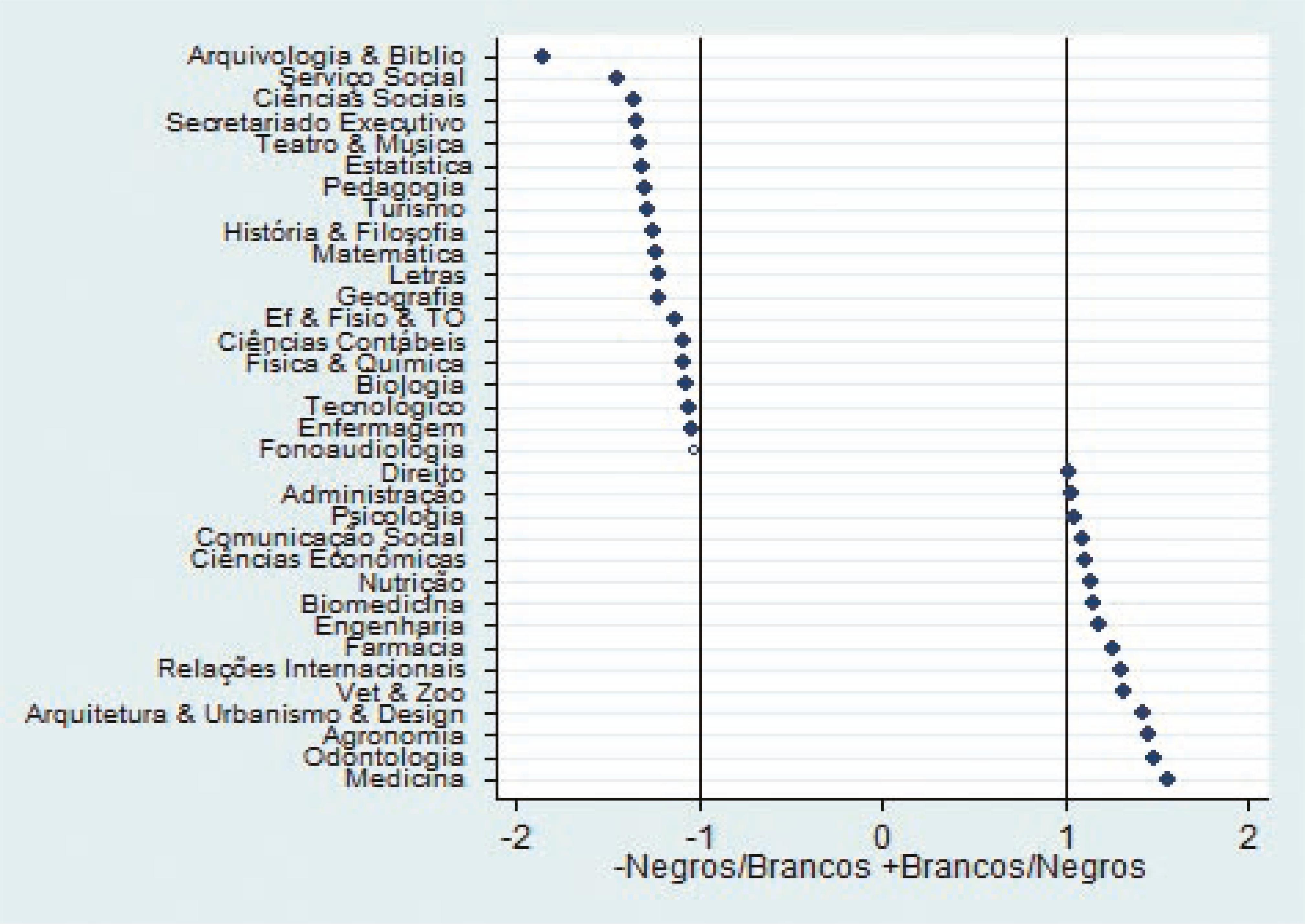Abstract
Access to higher education is essential to reduce the disadvantages of people with backgrounds in disadvantaged groups once it increases the chances of upward mobility. The literature on educational stratification shows that both the access to the different types of higher education (baccalaureate, vocational) and which fields of study are chosen (Medicine, Business or Teaching) influence the chances of reaching the best jobs. Given that different university degrees are not equal in terms of the advantages they bring to graduates, differences in access between university courses in terms of class, gender and race, the profile of access to these courses should be analyzed. In this article, we evaluate in an unprecedented and disaggregated way the expansion pattern of Brazilian higher education and how the opportunities in the system are distributed. Mobilizing Inep data, our results indicate that people from the upper socioeconomic groups (parents with higher education) were significantly more likely to enter the most prestigious courses (Medicine, Dentistry, Engineering, etc.) and public institutions than people from the lower strata. We also find strong gender stratification. Men are more likely to attend courses in the hard sciences and women in courses related to teaching and care. Gender stratification, however, combines non-linearly with stratification by socioeconomic status, as there are typical courses of upper-class men, upper-class women, lower-class men, and lower-class women.
Horizontal stratification; Higher education; Inequality of opportunity

 Fonte: Microdados do Censo do Ensino Superior 2010, Inep. Elaboração própria.
Fonte: Microdados do Censo do Ensino Superior 2010, Inep. Elaboração própria.
 * Variável de nível socioeconômico: Baixo = escolaridade dos pais inferior a ensino médio completo. Médio = escolaridade dos pais igual a ensino médio completo. Alto = escolaridade dos pais igual a ensino superior completo.Fonte: Microdados Enade 2007, 2008 e 2009. Inep. Elaboração própria.
* Variável de nível socioeconômico: Baixo = escolaridade dos pais inferior a ensino médio completo. Médio = escolaridade dos pais igual a ensino médio completo. Alto = escolaridade dos pais igual a ensino superior completo.Fonte: Microdados Enade 2007, 2008 e 2009. Inep. Elaboração própria.
 *Variável de nível socioeconômico: Baixo = escolaridade dos pais inferior a ensino médio completo. Médio = escolaridade dos pais igual a ensino médio completo. Alto = escolaridade dos pais igual a ensino superior completo. **Símbolos preenchidos apontam efeitos estatisticamente significativos, símbolos vazados não são estatisticamente significativos entre os elementos da razão.Fonte: Microdados Enade (2007, 2008 e 2009); Inep. Elaboração própria.
*Variável de nível socioeconômico: Baixo = escolaridade dos pais inferior a ensino médio completo. Médio = escolaridade dos pais igual a ensino médio completo. Alto = escolaridade dos pais igual a ensino superior completo. **Símbolos preenchidos apontam efeitos estatisticamente significativos, símbolos vazados não são estatisticamente significativos entre os elementos da razão.Fonte: Microdados Enade (2007, 2008 e 2009); Inep. Elaboração própria.
 Fonte: Microdados Enade (2007, 2008 e 2009); Inep. Elaboração própria.
Fonte: Microdados Enade (2007, 2008 e 2009); Inep. Elaboração própria.
 Fonte: Microdados Enade (2007, 2008 e 2009); Inep. Elaboração própria
Fonte: Microdados Enade (2007, 2008 e 2009); Inep. Elaboração própria